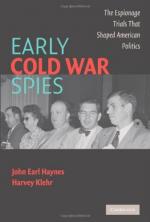|
This section contains 2,112 words (approx. 8 pages at 300 words per page) |

|
by Andrew Grosso
About the author: Andrew Grosso is an attorney in Washington, D.C., and serves as chair of the Association for Computing Machinery’s Committee on Law and Computer Technology.
In order to protect homegrown secrets from foreign competitors, the U.S. Congress concocted the EEA, a cause of broad concern on the domestic front.
In 1996 the U.S. Congress passed the Economic Espionage Act (EEA). Viewed simply, the EEA criminalizes the theft of confidential business information. However, when dealing with information, few things involving criminalization are simple, and the EEA is not among those few.
The impetus for the EEA was the end of the Cold War. Suddenly, the U.S. found that the greatest threat to its well-being had changed from military opposition to economic competition. Considering...
|
This section contains 2,112 words (approx. 8 pages at 300 words per page) |

|




